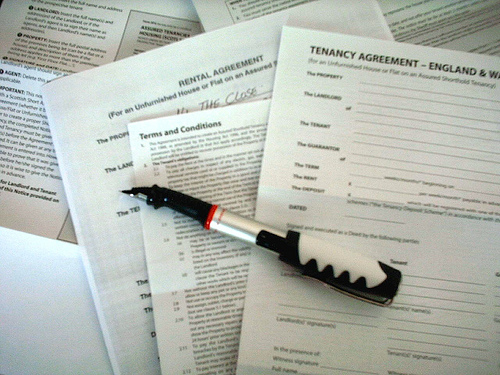 Georgia Contract Lawyer discusses that In order to sue for a contract in Georgia, you need to have legal standing to sue. Another fancy word for this is called “privity.” The doctrine of privity of contract provides that only a party to a contract has standing to sue to enforce it, even if the contract confers benefits on others.
Georgia Contract Lawyer discusses that In order to sue for a contract in Georgia, you need to have legal standing to sue. Another fancy word for this is called “privity.” The doctrine of privity of contract provides that only a party to a contract has standing to sue to enforce it, even if the contract confers benefits on others.
Simply put, that means you must have an actual vested, legal interest in the contract before you have a right to sue to enforce it. The same goes for someone who might be trying to sue you to enforce a contract. This means, if their names are not on the contract, then you better be sure that they actually have a vested legal right to sue you as a party to the contract .
O.C.G.A. §9-2-20 makes it very clear that “as a general rule, an action on a contract, whether the contract is expressed, implied, by parol, under seal, or of record, shall be brought in the name of the party in whom the legal interest in the contract is vested, and against the party who made it in person or by agent.”
For over 100 years, the Georgia Supreme Court has stated that the action on a contract must generally be brought in the name of the party in whom the legal interest in such a contract is vested. O’Leary v. Costello, 169 Ga. 754, 151 S.E. 487 (1930). Consequently, the proper parties are the parties who in regard to the subject matter of the contract, have given consideration or exchanged mutual promises of performance. American Fletcher Mtg. Co. v. First Am. Inv. Corp., 463 F. Supp. 186 (N.D. Ga. 1978).
In 2009, Judge Miller, Judge Barnes, and Judge Andrews of the Georgia Court of Appeals addressed this issue and ruled that:
” the trial court erred in granting an assignee summary judgment against a debtor to collect the amount owed on a credit card account agreement the debtor allegedly entered into with an assignor because the assignee failed to show that it was entitled to file suit to recover the outstanding debt against the debtor pursuant to O.C.G.A. § 9-11-17(a); the assignee relied on the affidavit of its agent and business records custodian of its credit card accounts to show that the assignor transferred to it all rights and interests to the debtor’s account, but the affidavit failed to refer to or attach any written agreements that could complete the chain of assignment from the assignor to the assignee, and although the assignee contended that the debtor did not raise its failure to present a valid assignment in the trial court, the record reflected that that issue was squarely before the trial court because the assignee directly addressed the debtor’s defense under § 9-11-17 in its motion for summary judgment, referring to the affidavit to show that it was the assignee. Wirth v. Cach, LLC, 300 Ga. App. 488, 685 S.E.2d 433 (2009).
This simply means that if a corporation or person is a party suing on a contract, but their names are not on the contract—they need to show evidence that the rights and interests were transferred to them, or “assigned”. If the evidence isn’t there, they likely have no legal standing to sue.
Therefore, if you are dealing with a contractual lawsuit, you need to be certain that both parties have the legal standing to sue. If you are currently faced with a business dispute or a breach of contract issue, a good Georgia lawyer can help you navigate these complex legal issues.
Consider calling Williams Oinonen LLC today at 404-654-0288.
 Georgia Injury Lawyer Blog
Georgia Injury Lawyer Blog

